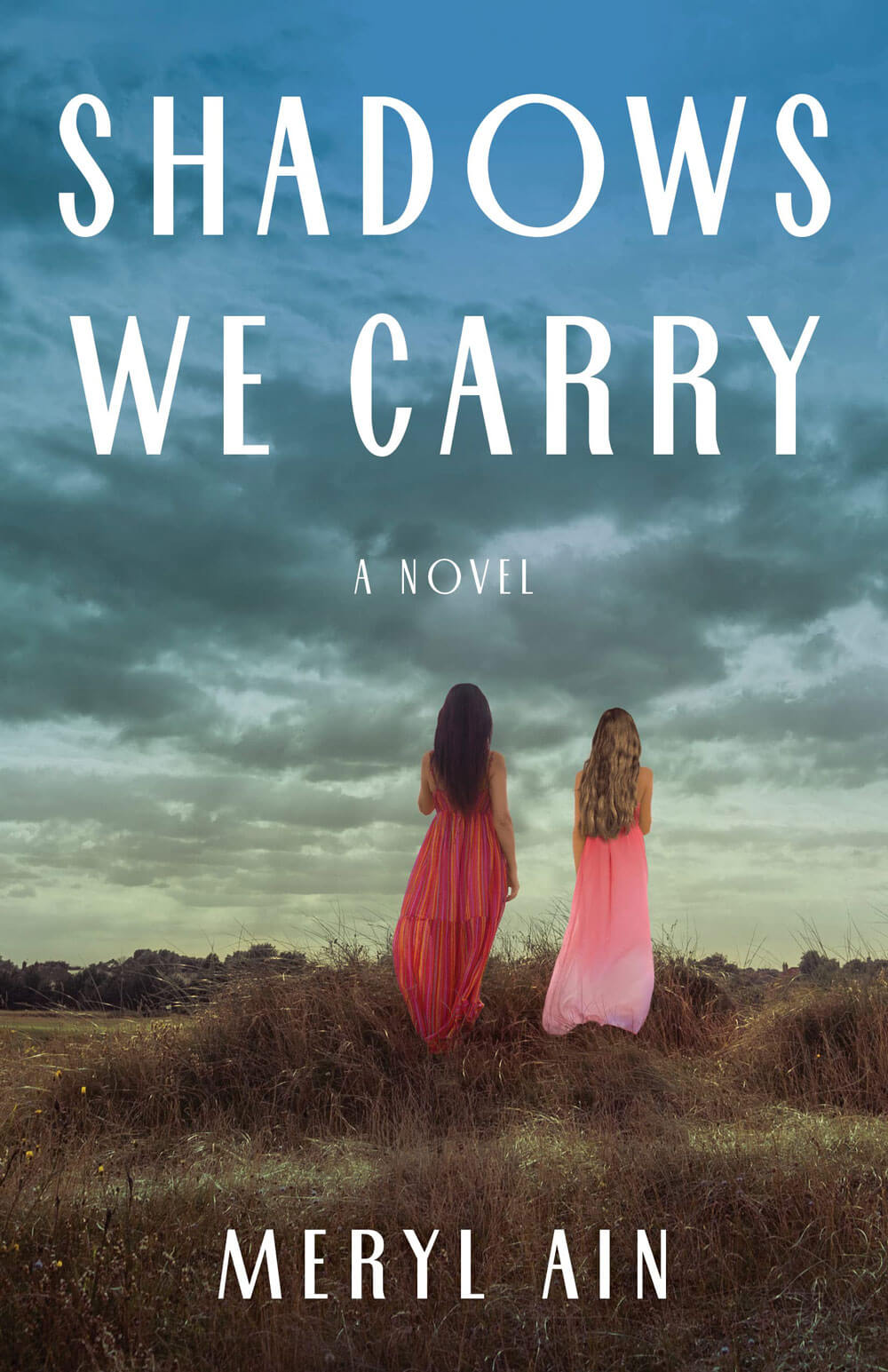
AVAILABLE NOW
Shadows We Carry
In this eagerly anticipated sequel to Meryl Ain’s award-winning post-Holocaust novel The Takeaway Men, we follow Bronka and JoJo Lubinski as they find themselves on the cusp of momentous change for women in the late 1960s. With the United States in the grip of political and social upheaval, the twins and a number of their peers, including a Catholic priest and the son of a Nazi, struggle with their family’s ancestry and how much influence it has on their lives. Meanwhile, both young women seek to define their roles as women, and as individuals.
Enlightening and evocative, Shadows We Carry explores the experience of navigating deeply held family secrets and bloodlines, confusing religious identities, and the scars of World War II in the wake of revolutionary societal changes.
Praise for Shadows We Carry
2023 Best Book Awards Winner in Fiction: Historical
2023 Readers’ Favorite Book Awards Silver Medalist in Fiction (Historical – Event/Era)
Most Anticipated Historical Fiction Novels of 2023—Hasty Book List
““Ain once again displays her deft gift for presenting the intersection of historical events and cultural awareness…Its quick, taut chapters reflect a peripatetic and energetic pacing of the latter part of the 20th century, a book of identity, it asks the twin questions, Can you ever escape history? Can you ever escape your history?”
– Jeffrey Sanzel, Times Beacon Record
““The many topics of this book – religion, denominational differences, assimilation, local, national, and world politics, marital fidelity, gay visibility, and rights, hiding Nazis – are masterfully weaved into a coherent whole; in and out of the story of a person, a family, and generation…”
– Por Gabor, Jewish Book World
“Shadows We Carry is an insightful novel that probes the complex, painful question of what it means to be Jewish in a post-Holocaust world.”
– Foreword Clarion
“The late 1960s of Shadows We Carry was a time of turmoil — political and social turbulence, cultural upheaval, and fraying of the bonds of convention. Meryl Ain has delineated those years beautifully. We feel right there with the novel’s main characters . . . their stories will have great resonance for contemporary readers. Each sister must fight for her own rights as women and as Jews. But each needs to look beyond herself toward a society free from the cruelty of discrimination and the brutality of hatred . . . a memorable novel.”
—Susan Isaacs, New York Times best-selling author
“Enlightening and evocative, Shadows We Carry explores the experience of navigating deeply held family secrets and bloodlines, confusing religious identities, and the scars of World War II in the wake of revolutionary societal change.”
—Hasty Book List, Most Anticipated Historical Fiction Novels of 2023
“ Shadows We Carry transports you into the multi-faceted lives of Jewish Holocaust survivors and their children during the 1960s and 70s in America. Her fully developed characters wrestle with guilt, love, marriage, Judaism, sexuality, politics, and the unraveling of family secrets. Ain, with impeccable research, has made a significant contribution to our understanding of the Holocaust and its dramatic impact on survivors and their descendants.”
—Esther Amini, author of CONCEALED: Memoir of a Jewish-Iranian Daughter Caught Between the Chador and America
“Meryl Ain deftly explores the experience of navigating deeply held family secrets and bloodlines… and the scars of World War II… Original, exceptional, fully engaging from cover to cover, “Shadows We Carry” is a compelling, thought-provoking, and entertaining read… and unreservedly recommended…” —Midwest Book Review
In this well-researched, character-driven story, Ain examines many themes and issues with insight and compassion. She folds topics such as feminism, antisemitism, gay rights, abortion, and second-generation Holocaust survivor concerns into the characters’ lives. Because Ain thoughtfully interweaves numerous historical events, significant nostalgic details, and cultural and geographic references, the characters’ stories will resonate deeply with those who experienced the era.
At its crux, Shadows We Carry asks how past lives and buried secrets affect families from generation to generation. Do the shadows we all carry determine who we are? How do we learn to live with them? Who bears responsibility, who bears guilt, and who must right the wrongs? —Renita Last, Jewish Book Council
“When I finished Shadows We Carry by Meryl Ain, I cried. Reading this book was akin to going home . . . . To say it is moving is an understatement. For many readers, the tale of twin sisters Bronka and JoJo will be an eye-opener to Jewish life in a New York gone by. Bravo.”
—Marilyn Simon Rothstein, author of Crazy To Leave You, Husbands and Other Sharp Objects, and Lift and Separate
“Meryl Ain’s sequel to The Takeaway Men is a novel that I couldn’t put down . . . . the story brings to life the turmoil of the era—the Vietnam War and the demonstrations against it, the marches for women’s equality and the fight for pro-choice . . . One of the most successful elements is how Ain has incorporated events of the day, as well as the history of earlier times, to the fabric of her story. This adds weight to her novel, grounds it in such a way that also lends authenticity and realism to each of her characters.”
—Jacquie Herz, author of Circumference of Silence
“Shadows We Carry by Meryl Ain is an important new book. It is not necessary to read her debut novel, The Takeaway Men, to understand this sequel, whose merits stand on their own. Its themes include: immigration, assimilation, questions of identity, how we define ourselves, and whether Holocaust survivors’ families have a responsibility to track down Nazi perpetrators. I was deeply affected by the novel’s characters and events. The issues raised are as valid today as they were 50 years ago. Book clubs, congregations, and other groups must read and discuss this work. Bring plenty of tissues with you.”
— Linda Ettinger Lieberman, Blogger, The Times of Israel
